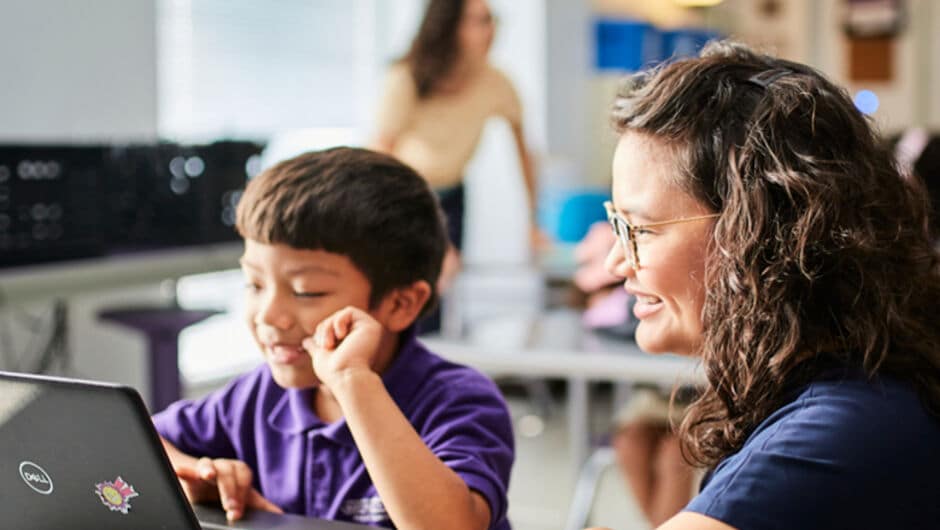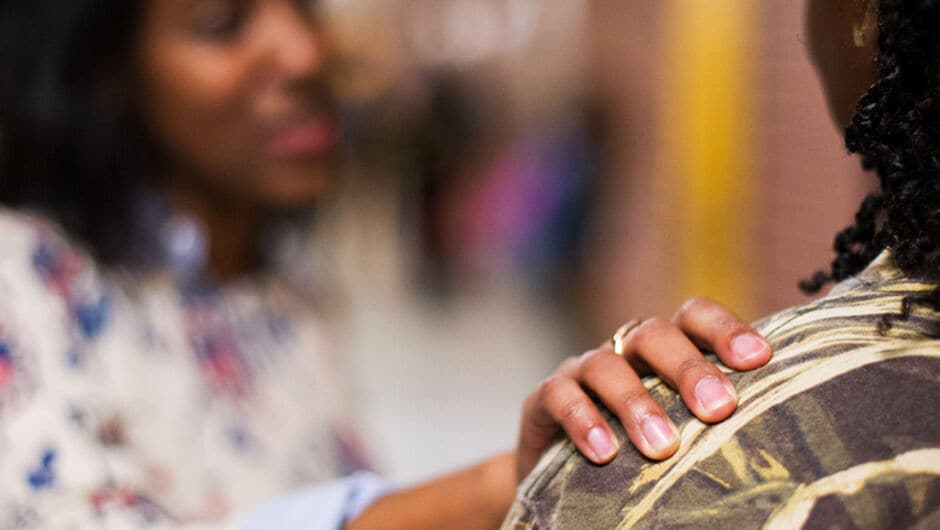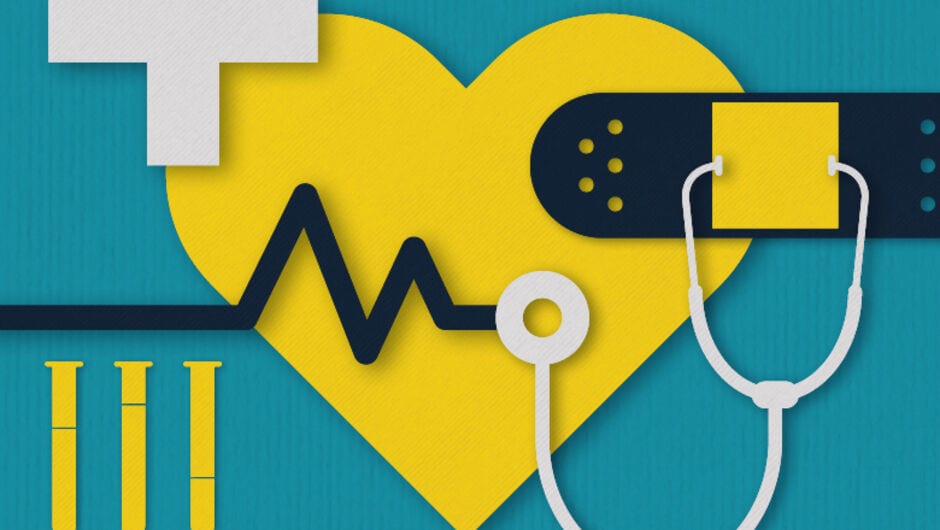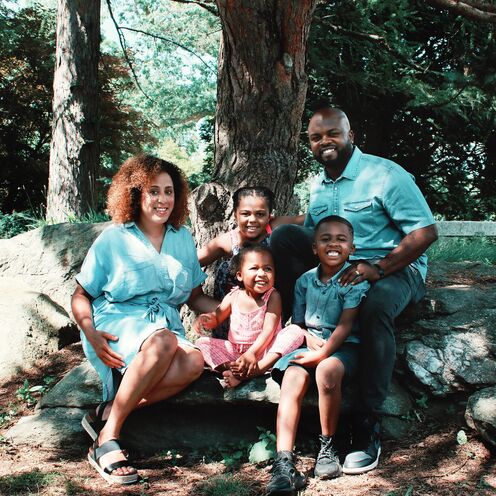
A ‘Hope Dealer’ and Her Kids Face Online School Together
A teacher and mom of three says her family will ‘power through with grace,’ despite the challenges of life during the pandemic.
Katie Ballah (Rhode Island ‘18) is in second grade, at least according to her 6-year-old son, Oliver. More accurately, Katie is a second-grade teacher at Achievement First Ilumniar Elementary School in Cranston, Rhode Island, the same school at which Oliver attends first grade and 9-year-old Sophia is in third grade.
Katie is, like so many parents, trying to keep up with her children’s education and everyday needs while she and her husband maintain full-time jobs that have moved online. Sophia and Oliver are joined by little sister Mia, who is 3 and in a preschool that has likewise begun a virtual program.
In the latest installment of our series “COVID-19: Community Voices,” Sophia and Oliver tell us what their lives are like now, while Katie opens up about balancing teaching and parenting—being there for her children and her students alike—in the midst of the coronavirus pandemic.
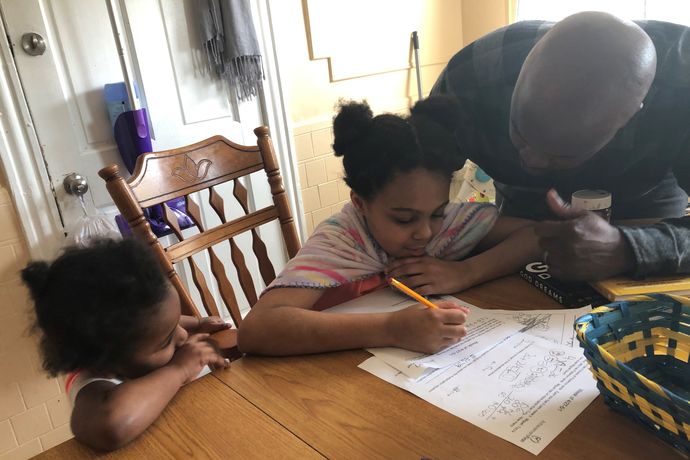
Oliver and Sophia: ‘The Coronavirus Makes Me Scared’
How are you doing school now?
Oliver: We go on Google Classroom and then we confer with our teachers, then we eat some lunch, then we have some free time. Any questions?
I have plenty of questions. How do you feel about it?
Oliver: I feel happy, excited, confused. Smart and proud.
Sophia: I feel happy and excited because I'm the one who always gets all their work done in a short time, so then I just chill on my computer.
Do you miss going to school in the school building or do you like it this way?
Sophia: I miss going to school at the school building.
Oliver: Me too.
How come?
Sophia: Because it's much more easier and you have to wake up early and then we just go on the bus.
Do you talk to your teachers now that school is online?
Sophia: I can talk to my math teacher every day because we have a math lesson, and on Wednesdays and Mondays, I can talk to my writing teacher.
What's your favorite subject?
Sophia: We don't really have social studies and science, but that was my favorite but now we don't have it anymore.
How have things changed aside from school? Are you guys staying home a lot?
Sophia: Yes, but sometimes we go for walks and stuff. We just built my bike and we just need one more tool to make it and then my mom and my dad are going to teach me how to ride it.
Aside from doing school on the computer, what other things are you doing these days now that so much has changed?
Sophia: Sometimes we cook.
Oliver: Sometimes I play on my computer all day.
Were you allowed to do that before?
Sophia: No. Sometimes we play other toys and we really like when it's rainy days because we like jumping in muddy puddles for a very long time outside, and then we take a warm bath, and then we watch all the robot movies.
Oliver: Only on rainy days.
How are you feeling about all the changes in your life recently?
Sophia: I feel that it's going to come back to normal soon.
Oliver: The coronavirus makes me scared. My godmother has the COVID-19.
I'm sorry to hear that.
Sophia: I hope they find a cure to coronavirus.
Oliver: I'm hoping for the corona and the COVID-19 to stop, but it must be gone right now. I want the coronavirus to get away right now or I'm hitting them, and I'm going to fight them.
You're going to fight it yourself.
Oliver: I'm going to fight the corona.
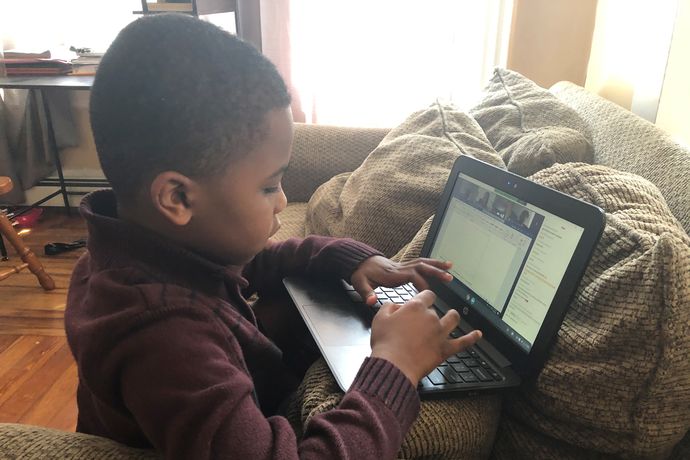
Katie: ‘We're Optimistic and We're Resilient’
How are you doing?
Katie: I think how I feel resonates with all the teachers I work with, but we're tired. I work with such an incredible team. I'm a grade-level leader, so I support the whole team. I work with such an incredible group of passionate, invested teachers.
I didn't expect we'd end up in our homes like this, but our team just mobilized so fast with simple systems, really effective systems to create some human touchpoints with parents right away, to allow the heart of what we've been doing in the building to continue to exist.
How have you managed to do that?
It's definitely about the human connection and identity sharing, actually a lot of which I learned through Teach For America. It's building authentic community by connecting us together, by sharing our lived experience, by sharing our identities. I feel like, even more so than I was able to in the classroom where I was teaching lessons back to back to back to back, we're building deeper community here because we're engaging parents multiple times a day. We're engaging them in their homes and the real feelings that I'm feeling and the real feelings that they're feeling—we're allowed to share those.
I think that that's really helping to build a meaningful community. If you're asking like practically speaking, we're using ClassDojo and Google Classroom. We're posting fun videos; I do a morning message every day, I'm singing songs that they know. We're posting pictures and videos of them doing their work. It's a lot of extra work to continue to perpetuate that community.
How do you communicate with the students?
I talk to my kids every day. There are 30 students in my classroom. I'm not conferencing with all 30. It's with my co-teacher and then another teacher.
So somebody is chatting with each one every day?
Yes, so I conference with 12 or 13.
How are the students doing by and large?
They are just incredibly resilient, powerful, independent kids. Their families, for sure, are enabling them. Each of them that I work with, they wouldn't be able to access the Zoom if it wasn't for a parent that was supporting them to be on time. That investment is incredible.
The kids, they're staying positive and resilient. I teach social-emotional learning (SEL), and I did that prior to all of this. We think about how we feel every day, and it changes. Some of the answers my kids gave are “confused” and “odd”; they'll say “sad,” they'll say “frustrated.”
They all have been taught SEL strategies to use in the classroom that I now hear them talking about how they're using at home: “I feel scared, but I'm taking a breath, and I'm thinking about what I'm grateful for and I'm choosing joy. That's what helps me to be persistent and optimistic.” These are words that kids say.
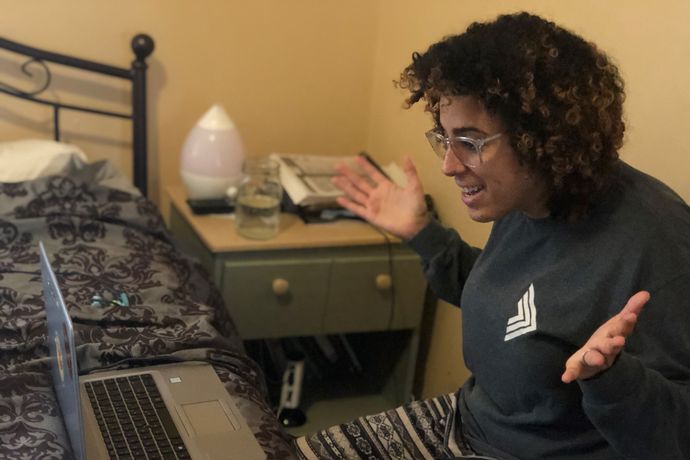
What are your worries or concerns for your students?
I think it's exhausting emotionally, social-emotionally, not being with your friends, being out of your rhythm. Parents are stressed and strapped. Every family has a different story. Many are touched by the virus. Kids, they definitely sense the energy of their families. The stress that's happening in the world, we don't have to tell them, they know.
I'm concerned, but I'm hopeful. I think that teachers play such a critical, critical role. Families foremost, but teachers for sure, we're hope dealers. We are this consistent and present force that's still there, that's still the same or in some ways. Yes, I feel like I'm a hope dealer. I'm enjoying teaching, I'm enjoying giving feedback, but more than anything else, I love just being present. I think that offers hope, and joy, and a measure of peace and strength.
The parents that you've talked to, how are they doing?
There's so many different stories. Like I have one parent that's just newly pregnant, so she's sick, and so she's trying to support her son who has ADHD. She's so committed to his education and to his future that despite her extreme fatigue and sickness, she's writing out all his math problems, helping him to stay really organized, and she's tired. We're trying to figure out how we can mail him hard copies of materials to make life easier for her.
There's another mom who had a health concern and she fell and broke her ankle and broke her wrist and she still shows up every day for these conferences.
How are you managing balancing parenthood and teaching?
Katie: Every day is very different and I'm so fortunate to have a partner. My husband is also working full time, but he is playing the most significant role in the distance learning. My kids are being taught by my colleagues and being conferenced with by my friends and they know my load. My kids, they do actually have to be a bit more independent, I think, than some kids because both of us are generally inundated with meetings all day. My 3-year-old, we didn't know what to do because she was at preschool, but now she has this virtual preschool that she engages in.
It's been exhausting to sit in your bed all day and look at a screen. I have to sit on my bed because the two desks are occupied by my kids, and then I log off the computer and then I’m like, "Man, I'm so tired," but I'm actually in my bed and I've been in my bed all day.
What are the hours that you're not online for school look like for you and your family?
We try to go on a really long walk, like an hour. We got our masks and we live in the city. We live actually in the neighborhood where our students live. We just take a long walk. I try to let them run, and then we eat together. It's actually more difficult to cook than it was before, oddly enough, so we eat takeout a couple of times a week. Then we watch a movie, they watch a movie, then we go to bed.
What are the weekends like?
We try to unplug as much as we can from computers. They have church—they did their church Zoom on Saturday. We try to stay actively involved in our big community. My husband does a lot of community work, and so he's organizing different initiatives to support delivering food to people that need it. There's a soup kitchen that he's involved in; I can't leave the house, but he does that work. He does a lot of that work on the weekends when I'm not working.
Are you able to make any time for yourself personally to maintain balance and just take a step back?
I'm working on it. Something I was learning prior to this experience was how to really honor myself and how to really cherish myself. Because the rhythm at a high-achieving charter school is really intense. I'm sure it's intense for all teachers everywhere, but it was really intense where we were. So I was trying to juggle that life and just came to the recognition that in order for me to be able to adequately serve anyone else, I have to serve myself first. I was waking up at 4:30 in the morning to run before my kids woke up to get to school at seven, but now I am, three weeks into this, reevaluating what that looks like now.
I'm challenging myself to move out of the crisis mode and get into the rhythm of what this is for now. I think I'm going to wake up a little bit earlier and try to just spend some time with myself. I think that's the best thing. It's also what I'm encouraging my team to do because we're all tired.
How do you think you'll make it work if this extends much longer?
At school, I think they're challenging us to scale back on so many conferences and move towards group instruction. That would require me recording lessons, and then conferring with a group of kids, and that might free up some time during the day that I don't have right now. That could mean that things will change here and I'll be able to be a little bit more supportive in my kids’ schoolwork, but I'm not sure.
What I do know about our family is we're optimistic and we're resilient. Whatever is happening, I think that we're going to power through with grace. I laugh a lot and cry if we need to.
Is there anything else you want to add?
I feel just really, really fortunate and grateful to have been given this opportunity to shift careers in such a dramatic way, to really be on the frontlines of making impact. It's a gift. It's really a gift that I'm able to have access to these kids and these families in this time of challenge.
More Community Voices
Hear from other students and their parents or guardians around the country as they navigate life and learning during the coronavirus pandemic, in our "COVID-19: Community Voices" series.
If you'd like to tell your story or would like to suggest a story for us to cover, please email us. And find resources for educators supporting students through the coronavirus outbreak at Teach For America's educator resource hub.
Sign up to receive articles like this in your inbox!
Thanks for signing up!
Content is loading...




